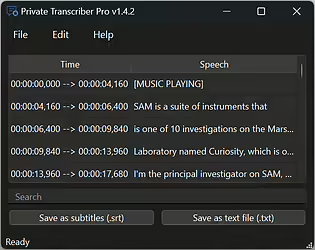GrapheneOS is basically the open source version of Android, the Android Open Source Project, enhanced with many privacy and security features on top. It’s basically the most secure and private mobile OS you can run in Android these days.
To install it you’ll need a Pixel phone. This is because those devices offer the best security in their hardware. Here’s the current list of supported phones. At the time of writing, there’s official support for devices from the Pixel 4a to the Pixel 7 pro. If you’re planning to buy a new phone, it’s recommended to get at least a Pixel 6(that means you should get either a Pixel 6, Pixel 6 Pro, Pixel 6a, Pixel 7, or a Pixel 7 Pro), given the better and more secure hardware(Titan M2 was introduced here), and 5 years of security updates. If you’re on a budget, you should consider buying a Pixel 6a as it offers an incredible value for money, and still gets the same 5 years of security updates and similar hardware. Note that if you do buy them from those links, I might get a small commission from it.
If you already have a supported phone in your hands, the next step is to install GrapheneOS in it. This is much simpler than what you imagine. There are two official ways to install it, either through a web installer, or through a command line installer. It doesn’t matter which one you use, you’ll end up with the same result if you follow the official instructions correctly. If you ever want to ask something about GrapheneOS, head towards the GrapheneOS community where you can ask anything you want, and will receive excellent support.
After the install, you’ll have a very basic, yet functional smartphone. If you only need to use the phone for calls, SMS, and basic stuff like that, then you’re done. If you want to add more functionality through apps, you have a couple of options:
F-Droid
F-Droid is an app store dedicated to host open source applications. You can get many apps from this store, but don’t expect to see the big brands as mostly they have closed sourced applications. The good news is that there are plenty of open source alternatives that you can use instead, which gives you more freedom. To install F-Droid, simply open your web browser, which is called Vanadium, and is available at the bottom of your screen, and go to https://f-droid.org. There, click on Download F-droid. You’ll be downloading an apk file(an Android app). Once it’s downloaded, open it and install it. You should be able to install apps from this store now.
GitHub et al
Many apps have their source code and sometimes also their releases hosted in GitHub or similar sites like GitLab. You can simply go to the project GitHub page, go to the releases, and download the apk file from there. Note that you can install some apps from F-Droid and others from GitHub without any issues. The benefit of installing apps from GitHub directly is that sometimes the apps are not available in F-Droid, or they have a different set of features. The downside is that you’ll have to check manually if there’s a new update. Some people use Obtainium to address this, but I haven’t used it.
Curated list of open source apps
Aegis(F-Droid | GitHub). “A free, secure and open source app for Android to manage your 2-step verification tokens”. You can also easily import and export your tokens from and to other apps.
AntennaPod(F-Droid | GitHub). “Easy-to-use, flexible and open-source podcast manager and player”.
BookReader(F-Droid | GitLab). “Simple book reader”. This one is great for reading PDFs as it has text re-flow.
Catima(F-Droid | GitHub). “a Loyalty Card & Ticket Manager for Android”. Basically anything with a bar-code in it, like a library card, etc, can be stored here.
DAVx⁵(F-Droid | GitHub). “open-source CalDAV/CardDAV suite and sync app for Android. You can also access your online files (WebDAV) with it.”
FairEmail(F-Droid | GitHub). “Fully featured, open source, privacy friendly email app for Android”
Loop Habit Tracker(F-Droid | GitHub). “a mobile app for creating and maintaining long-term positive habits”
Infinity(F-Droid | GitHub). “A Reddit client for Android”
KDE Connect(F-Droid | GitHub). “Multi-platform app that allows your devices to communicate”. The best way to move data between your computer and your phone.
Organic Maps(F-Droid | GitHub). “Open-source, community-driven maps for travelers, tourists, cyclists & hikers”. Works offline too.
OpenKeyChain(F-Droid | GitHub). “OpenPGP implementation for Android”. Works with FairEmail.
OpenScale(F-Droid | GitHub). “Open-source weight and body metrics tracker, with support for Bluetooth scales”
RHVoice(F-Droid | GitHub). “free and open source speech synthesizer”
RunnerUp(F-Droid | GitHub). “Track your sport activities with RunnerUp using the GPS in your Android phone:”. Works with RHVoice.
Simple Calendar Pro(F-Droid | GitHub). “highly customizable, offline monthly calendar app for Android”.
Simple Contacts Pro(F-Droid | GitHub). “Easy and quick contact management with no ads, handles groups and favorites too.”
Simple Gallery Pro(F-Droid | GitHub). “Your favorite photo album. Professional file organizer to edit photos with ease”
Simple Notes Pro(F-Droid | GitHub). “To do list widget with a notebook organizer, checklist, simple shopping list”. Probably the best notes/checklist app for Android.
Vinyl(F-Droid | GitHub). “Music player easy to use and customizable”
VLC(F-Droid | GitHub). “Video and audio player that supports a wide range of formats, for both local and
remote playback.”
Voice(F-Droid | GitHub). “Minimalistic audiobook player”
Geometric Weather(F-Droid | GitHub). “A Material Design Weather Application”
Did you enjoy the article?







0 Responses
Stay in touch with the conversation, subscribe to the RSS feed for comments on this post.